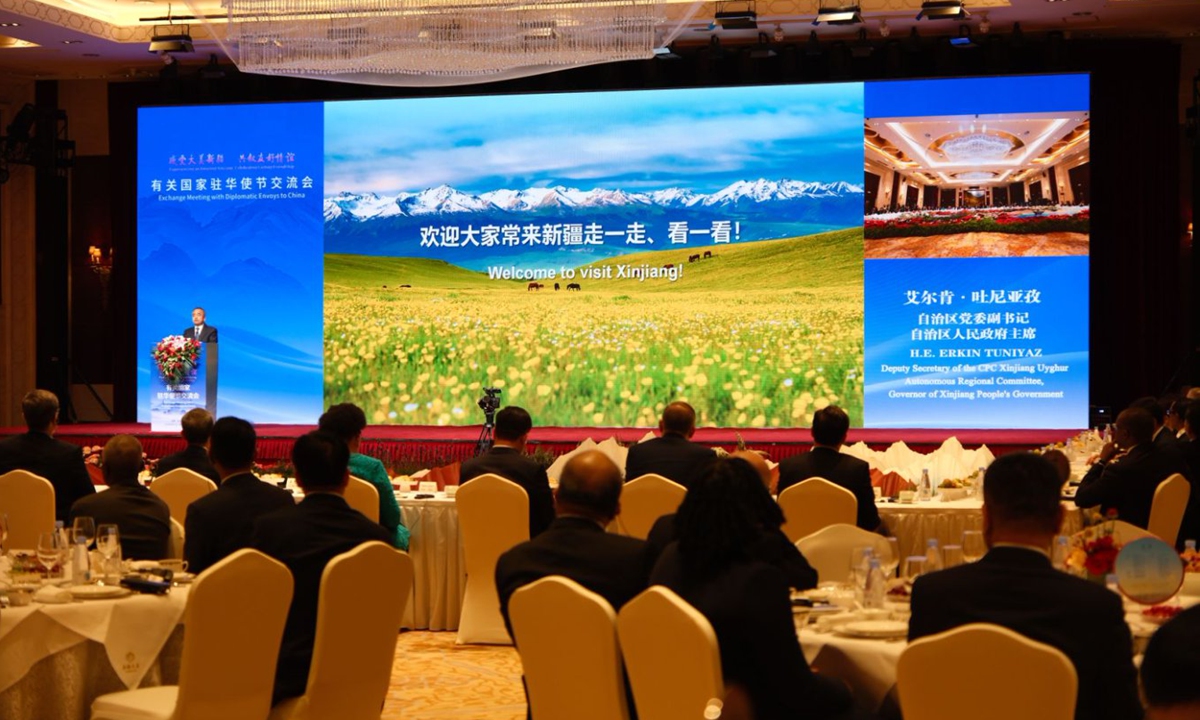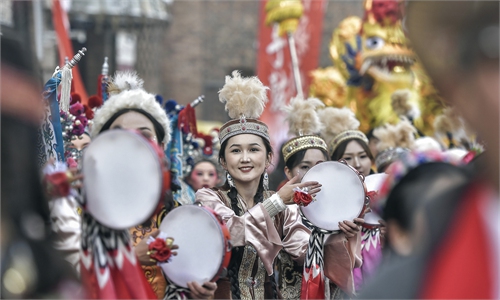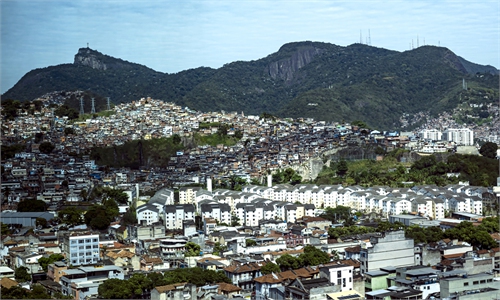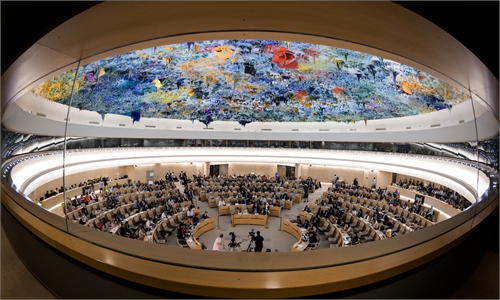
An exchange meeting for foreign diplomats to share views on Xinjiang's economic and social development and human rights protection achievements is held in Beijing on March 31, 2025. Photo: Courtesy of the Foreign Affairs Office of the People's Government of the Xinjiang Uygur Autonomous Region.
An event to introduce the economic and social development and human rights protection in Northwest China's Xinjiang Uygur Autonomous Region was held in Beijing on Monday, with 70 foreign diplomats from 43 countries in attendance.
Erkin Tuniyaz, deputy secretary of the CPC Xinjiang Uygur Autonomous Regional Committee and Chairman of the People's Government of Xinjiang Uygur Autonomous Region, introduced Xinjiang's economic and social development as well as its achievements in human rights protection. He also invited everyone to visit Xinjiang more often.
Foreign diplomats attending the event spoke highly of Xinjiang, with some sharing their firsthand experiences from visits to the region.
"I have visited Xinjiang multiple times, and each time I am impressed by its changes and development. None of this would be possible without the Chinese government's wise policies. Xinjiang has made significant contributions to the Shanghai Cooperation Organization (SCO) in various areas, including security, stability and the fight against terrorism, extremism and separatism," said Nurlan Yermekbayev, secretary-general of the SCO, in his speech.
Farhod Arziev, ambassador of Uzbekistan to China, expressed optimism about the prospects of deepening cooperation between Uzbekistan and China's Xinjiang region in his speech. "We are developing transportation, logistics and trade and investment cooperation," said Arziev.
"I have been to Xinjiang five times," Pakistani Ambassador to China Khalil-ur-Rahman Hashmi told the Global Times. "The economic progress Xinjiang has achieved is very impressive. The region has also made remarkable social progress, especially in terms of connectivity - Xinjiang is now more connected with Central Asia, Pakistan and other regions," said Hashmi.
Hashmi noted that some Western countries have misunderstandings regarding issues such as human rights. "China's approach to human rights is very prudent. What comes first is the empowerment of the people - economically, socially, and then culturally. Political and civil rights are also important, and in Xinjiang, people from different ethnicities and communities are well represented. They participate in governance at various levels, from towns and prefectures to cities. They are an integral part of the decision-making process," Hashmi told the Global Times.



